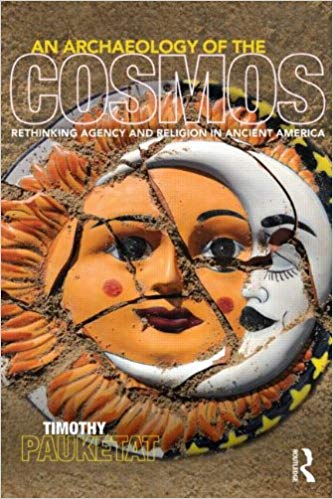Now that the fall semester is underway, it’s once again time to talk about the classes I’m taking this term. As you may have noticed from the title, this is my final semester of coursework. While I’m far from finished with the program (more on than in a future post), it’s still a significant milestone. Once you’ve completed classes, it’s on to qualifying exams, and finally the dissertation itself.
The semester’s only just started though, so for now, coursework still defines much of my academic schedule.
Whereas last year I took three classes each term, for the American Studies Program at William and Mary, the load drops down to two during the final semester of coursework. It’s understood that you’ll be using the extra time to finish putting your reading lists together, so believe me, it doesn’t feel terribly different from a typical semester.

The first class I’m taking is Movement, Mobility, and Migration, which looks at transit through an interdisciplinary lens. So far we’ve read articles in anthropology, history, and philosophy, with the earliest work being Aristotle, and the most recent being published in 2017. From the vibrations of atoms to post-Katrina displacement, the course, pardon the pun, covers a lot of ground, but I’m really excited to be taking this class. Given my interest in travel infrastructures, in many ways, this is the course I’ve been waiting for, and I think it will introduce me to methodological frameworks that will greatly strengthen my future research.

The second course is Religion in America to 1900. Unlike the other courses I’ve taken at William and Mary, this class doesn’t address my primary research interests, but I’ve long been intrigued and confounded by religion, so I see it as both a palate cleanser and an opportunity to explore different interests. Since the course operates by having students write discussion questions ahead of time, I also see it as a chance to practice skimming books while still gleaning enough significant details to create substantive inquiries, skills I’ll definitely need when I’m working through my reading lists next semester. So far our readings have been covering the problematic nature of the term “religion” itself, especially when applied to ancient or indigenous cultures that have been subjected to colonial infrastructures. More recently, we’ve been reading about the indigenous communities at Cahokia, Caddo, and other North American locales.

Written by the same author, these two books explore similar subject matter through different lens. More specifically, Cahokia was written with general audiences in mind, while An Archaeology of the Cosmos is a more academic text. 
I see this semester as a mixture between exam prep and research prep. Whereas Religion in America will help me further refine my critical reading skills, Movement, Migration, and Mobility will be another opportunity to think about my research through new methodological frameworks. Either way, I see both classes as a way to work on practical skills while learning fascinating content. What’s not to like?